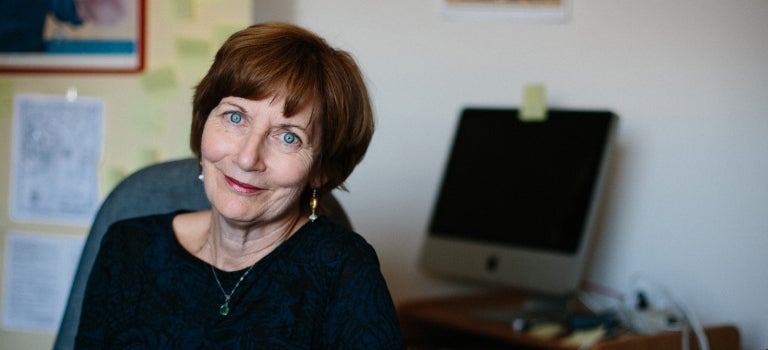Summer Reading List

Critic-in-residence Maureen Corrigan shares her top five books for this summer. Photo by Kuna Malik Hamad.
July 21, 2014—Works of history—narrative, graphic, literary, and imagined—top my summer reading recommendations this year, in addition to a suggestion for a taste of lighter fare.
The one book I wish everybody would read this summer is Greg Grandin’s The Empire of Necessity, a superb work of narrative history about an actual slave revolt that took place in 1805 on a Spanish ship called the Tryal. This revolt, in which 72 slaves commandeered the ship for 53 days at sea, was the real-life basis for Herman Melville’s floating Gothic masterpiece of a short novel, “Benito Cereno.” Grandin is also the author of the deservedly acclaimed 2009 book, Fordlandia, about Henry Ford’s doomed attempt to create a utopian settlement in the Amazonian rainforest.
The 100th anniversary of the beginning of World War I dominates the offerings from every major publishing house this year. One standout is a graphic novel called The Harlem Hellfighters by Max Brooks and illustrated by Caanan White that dramatizes the history of the 369th Infantry Regiment. This highly decorated African American regiment—dubbed “the Men of Bronze” by their French allies and “The Harlem Hellfighters” by their German enemies—spent 191 days in combat, longer than any other American unit, white or black. As Brooks and White detail in panel after vivid panel, The Hellfighters gamely fought a two-front war: against the enemy “over there” and racial prejudice everywhere.
In The Care and Management of Lies, Jacqueline Winspear, author of the best-selling “Maisie Dobbs” mystery novels, has written an evocative historical novel that chiefly focuses on the British home front during World War I. Winspear’s heroine, a teacher, marries her farmer fiancé just as the war breaks out and soon finds herself plunged into an unrelenting daily grind of hoeing, hop-picking, and messy animal husbandry when her husband volunteers for overseas service. With the eye for early 20th-century period detail that has made her “Maisie Dobbs” books so popular, Winspear captures the exhaustion of farm labor, as well as the constant anxiety that haunts her heroine, always fearful that a letter of condolence would be delivered in that day’s mail.
Kevin Birmingham’s The Most Dangerous Book is a fascinating account of how James Joyce came to write Ulysses and how this outrageous novel—first published in 1922 by brave Sylvia Beach, owner of the legendary Shakespeare & Company bookshop in Paris—finally came to be deemed “literature” in a landmark federal obscenity trial in 1933. (It certainly helped that the U.S. federal judge John M. Woolsey was unexpectedly moved by the bawdy lyricism of Molly Bloom’s soliloquy.) Birmingham also offers a rich vision of expatriate artistic life in Europe after the war.
Finally, for pure suspense fun in the Gone Girl mode, pick up Jean Hanff Korelitz’s You Should Have Known. Korelitz—the author of the novel-turned-movie, Admission, about admissions office insanity at Princeton University—is a sharp social observer and a deft dispenser of unexpected plot twists. Her heroine here, Grace Reinhart Sachs, is a marriage counselor who’s hip to the faintest whiff of marital infidelity and duplicity. Too bad, Grace doesn’t subject her own husband to the sniff test before it’s too late. You Should Have Known is an enormously entertaining cautionary tale that reminds us that smart women (precisely because they’re blinkered by their own brain power) sometimes can make the most foolish choices.
More by Maureen Corrigan
Maureen Corrigan’s forthcoming book, So We Read On: How The Great Gatsby Came to Be and Why It Endures, has been named by Publishers’ Weekly as one of the top ten non-fiction titles to look out for this fall. It will be published on September 9, 2014. She is critic-in-residence at Georgetown’s Department of English, where she teaches courses in the literature of New York City, American Public Intellectuals, Women’s Autobiography, and Hard-boiled Mystery Fiction. In the fall of 2014, Corrigan will be teaching Journalism and Literature of Washington, DC, with Barbara Feinman Todd, and Detective Fiction. You can find more of her book reviews on NPR.